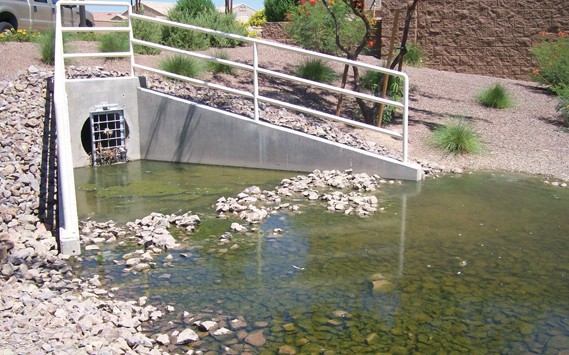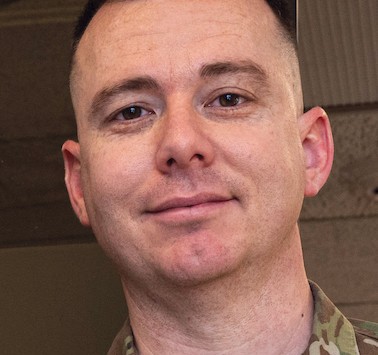Do you know what is going down your storm drain?
At Luke Air Force Base, we have more than 1,400 industrial processes that could potentially harm Arizona’s watershed. Now consider the 1.5 million residents in the Valley.
Rainstorms can flush the smallest amounts of pollutants from parking lots, streets, driveways, pressure washing activities or lawns. It flows into the storm drain system that eventually ends up in rivers, streams, and lakes and can migrate into groundwater.
One household may produce minimal amounts of pollutants but the combined quantity of pollution from everyone in the community may be cause for concern. Pollutants in the water run-off can poison fish and other aquatic life, and make water unsafe for drinking and swimming.
Employees and residents can help protect their storm water and ground water systems by practicing pollution prevention initiatives.
Some healthy habits to reduce water pollution include:
Vehicle maintenance
• Use a commercial car wash or wash your car on a lawn or other unpaved surface to minimize the amount of dirty, soapy water flowing into the storm drain and eventually into the local water. The Luke AFB car wash is located at Bldg. 247.
• Check your car, boat, motorcycle, machinery and equipment for leaks and spills. Make repairs as soon as possible. Clean up spilled fluids with an absorbent material like kitty litter or sand, and don’t rinse the spills into a nearby storm drain. Properly dispose of the material.
• Recycle used oil, grease, and other automotive, industrial or household fluids. Avoid dumping these chemicals on the ground, down the storm drain or in the trash. These chemicals have the potential to contaminate run-off and leach into groundwater. Base residents should perform auto repairs and maintenance at the Auto Skills Shop located in Bldg. 248.
Yard maintenance
• Over fertilization is a common problem. The excess can contaminate rivers, streams and lakes.
• Use pesticides and fertilizers sparingly or in the recommended amounts. Avoid application four days prior to a forecast for rain. Chemicals will wash into the local stream.
• Select native plants and grasses that are drought and pest-resistant. Native plants require less water, fertilizer and pesticides.
Sweep up yard debris rather than hosing down areas. Compost or recycle yard waste when possible.
• Avoid over-watering. Water during the coolest times of the day. Avoid allowing run-off into the storm drain.
• Cover piles of dirt and mulch used in landscaping to prevent pollutants from blowing or washing into local water bodies.
• Plant groundcover on bare spots in the yard to prevent soil erosion.
• Clean up after pets. Dispose of waste in the trash or toilet. Pet waste contains viruses and bacteria that can contaminate surface and groundwater and is the number one culprit in storm water pollution in Arizona.
Home repair and facility
improvements
• When beginning an outdoor project, locate the nearest storm drains and protect them from debris.
• Sweep up and dispose of construction debris such as concrete and mortar.
• Use nonhazardous materials or water-based paints. Use hazardous substances like paints, solvents, and cleaners in the smallest amounts possible, and follow directions on the label.
• Clean up spills immediately, and dispose of the waste safely.
• Store hazardous substances properly to avoid leaks and spills. Avoid leaving them outdoors. Contact the Luke AFB Hazardous Material Chief, at 623-856-4748 to learn how to properly store and dispose of excess hazardous material.
• Purchase and use nontoxic, biodegradable, recycled and recyclable products whenever possible for cleaning (ex. baking soda, distilled white vinegar, and ammonia are safer alternatives to caustic chemicals and they save money). You can find some great alternatives at www.Earth911.com.
• Dispose of excess paints through a household hazardous waste collection program, or donate unused paint to local organizations. Homeowners can contact the local city for the next Household Hazardous Waste Turn-in event or a certified drop-off location near your residence.
For more information about storm water pollution prevention, go to www.azSTORM.org or call Jeffery Schone at 623-856-8486.











